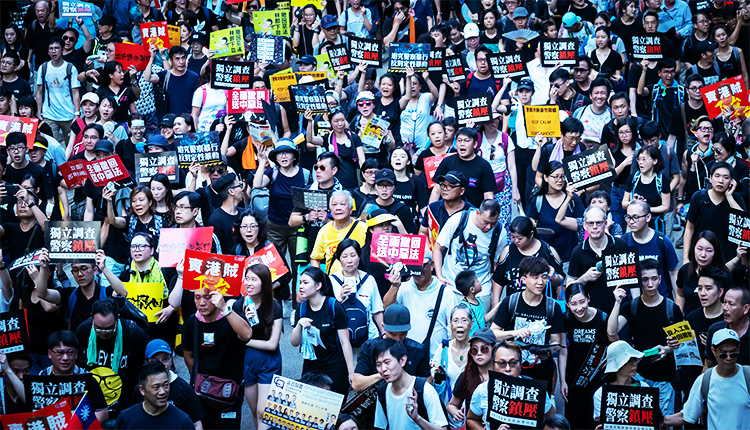
Hong Kong Protests Affect the City’s Economy and Stock Market
Hong Kong Economy: Hong Kong has experienced widespread protests in the last six months – without any signs of abating anytime soon.
The former British colony returned to Chinese rule in 1997. It is also a global financial and business center that connects China to the world.
The protests began after proposed changes to a law that would have allowed extradition to mainland China.
They later morphed into broader anti-government protests to include demands such as greater democracy and universal suffrage. Such claims would, at times, lead to violent clashes between the police and protesters.
Here’s how the protests have affected the country’s economy and the stock market.
Recession
Protests, along with US-China trade war uncertainties, have sent the Hong Kong economy into a recession for the first time in a decade.
Iris Pang projected Hong Kong’s annual gross domestic product to fall by 2.25% in 2019 and 5.8% in 2020.
Iris Pang is China’s economist at Dutch bank ING.
The recession could get worse.
Retail sales decline
A slump in Hong Kong’s retail sales is a primary driver of its economic downturn. Private consumption contributes to around 65% of its GDP.
Early this year, the global economic outlook turned bleak, and Hong Kong consumers have since become cautious about their spending.
But protests made it worse. Consumers have further held back spending, exacerbating the decline in its retail sales.
Declining tourism
Tourism activities in Hong Kong have declined, too, contributing to the city’s economic troubles.
Visitors from mainland China account for close to 80% of the tourists in the country. However, this number fell by around 4.45% between January to October in 2019 compared to the same period in 2018.
Stocks rise in 2019 despite economic pressure
Hang Seng Index – Hong Kong’s benchmark stock index – appears to be on track to end 2019 higher than it was at the beginning of the year.
According to Mark Mobius, investors still see the country’s stock market as a way to trade Chinese assets.
Mark is a founding partner at Mobius Capital Partners.
According to Mobius, the country has always allows entering China, and that will not change anytime soon.
Top market for listings
Hong Kong is likely to retain its top market position for new stock listings globally.
Thanks to a mega secondary listing by Chinese technology giant Alibaba and the IPO by a brewery Budweiser’s Asia Pacific business. They have helped the city surpass rival stock exchanges in the U.S. and mainland China.




